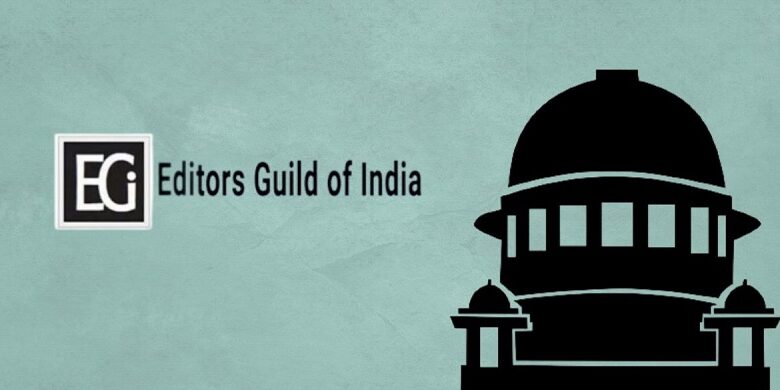
In a significant development, the Supreme Court of India, on Friday, decided to extend the interim protection from arrest to four members of the Editors Guild of India who were named in FIRs (First Information Reports) filed for publishing a fact-finding report on the Manipur violence. The Court’s decision underscores the importance of protecting the freedom of the press and journalists’ right to express their viewpoints.
The Supreme Court’s stance in this case was crystal clear: “Making a false statement in an article is not an offense of 153A (Promoting enmity between different groups); it may be incorrect statements.” The Court went on to ask a critical question, “Incorrect statements are made by journalists across the country, will you prosecute all?”
Chief Justice of India DY Chandrachud took a firm position, asserting that, prima facie, no offenses were established against the journalists. He posed a crucial question: Why should the FIRs against the four journalists not be quashed? The Court defended the rights of journalists, emphasizing, “Journalists are entitled to put forth a viewpoint…just show us how these offenses (mentioned in the FIRs) are made out. This is just a report. You have implicated sections which are not made out.”
The Editors Guild of India had dispatched a four-member team to Manipur, which subsequently released a comprehensive 24-page fact-finding report on the Manipur violence on September 2. This report sought to shed light on the prevailing situation and provide a balanced perspective on the events unfolding in Manipur.
The Editors Guild’s report raised concerns about the one-sided nature of media reports regarding the ethnic violence in Manipur and accused the state leadership of exhibiting partisanship. It is worth noting that the role of the media as a watchdog and a voice for the voiceless is vital in any democracy, and its members play a critical role in bringing important issues to the forefront.
However, the Manipur government’s reaction to the report was swift and severe. Days after the release of the report, an FIR was lodged against the president and three other members of the Editors Guild of India. They were accused of attempting to exacerbate the already tense situation in the violence-affected state.
The FIR, which accused the four Editors Guild members of various offenses under the Indian Penal Code, including promoting enmity between different groups, ignited a nationwide debate about the limits of freedom of the press and the importance of protecting journalists in their pursuit of truth and justice.
The Supreme Court’s decision to extend interim protection to the four accused journalists is a significant victory for the freedom of the press and a strong endorsement of the vital role that journalists play in a democratic society. The Court’s observations underscored the importance of distinguishing between incorrect statements and malicious intent, a distinction that is crucial in ensuring the safeguarding of free speech.
In the modern age of information, journalists often find themselves navigating a complex landscape where they must balance their duty to report the truth with the potential consequences of their words. In this context, it is essential to provide journalists with a level of legal protection that allows them to perform their duties without the constant fear of legal repercussions for their work.
The Supreme Court’s decision also serves as a reminder of the broader responsibility of governments to protect and uphold the principles of democracy, including the freedom of the press. In democratic societies, it is imperative that journalists are allowed to report objectively, investigate issues of public interest, and present diverse perspectives without the fear of intimidation or legal harassment.
The case of the Editors Guild of India highlights the need for a robust legal framework that safeguards journalists from arbitrary legal action and harassment. While it is essential to hold media organizations accountable for their reporting, it is equally important to ensure that journalists can perform their work without the undue burden of legal cases and threats to their freedom.
The extended protection provided by the Supreme Court should not be seen as a carte blanche for journalists to engage in irresponsible reporting or spread false information. Instead, it reaffirms the principle that journalists must be allowed the freedom to report, investigate, and present facts without undue interference or intimidation. Furthermore, the Court’s emphasis on distinguishing between incorrect statements and deliberate attempts to promote enmity between different groups sets an important precedent. It sends a clear message that the legal system must exercise caution and discernment when dealing with cases involving journalists and their work.
News Mania Desk / Agnibeena Ghosh 18th September 2023






